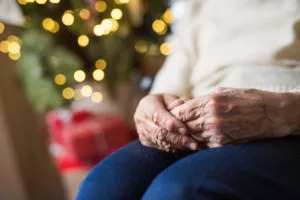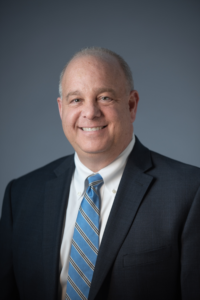Capital Caring Health Grief Support experts offer advice on risk, warning signs and where to go for help.
Take isolation and loneliness, add illness or chronic disease, anxiety over COVID-19 and restrictions, plus the holidays, and the risk of suicide, including among seniors, is at an all-time high.
- Everyday 123 Americans die of suicide (2018)
- The pandemic has heightened pre-existing physical and mental health issues that have increased depression and suicide rates; the biggest risk factors are related to social isolation
- Highest rates of suicide are among those age 75 and older; especially males and those divorced or widowed; and among women aged 45-54
What can you do? Capital Caring Health Director of Grief Support Marcie Fairbanks (available for interview) advises what to watch for and the help available.
Capital Caring Health, a nonprofit elder health and advanced illness/hospice provider understands being alone—especially at the holidays—or coping with illness are already a challenge. Adding the emotional stress and anxiety from worrying about ourselves or loved ones during the pandemic and social isolation makes it especially important to stay socially connected, and pay attention to our own feelings as well as what we see and hear from loved ones, friends, and neighbors.
Among the risk factors that may be especially prevalent among seniors:
- Mental health conditions (affects 1 in 5 adults and often goes undiagnosed among seniors)
- Major physical and/or chronic illnesses
- Lack of social support and a sense of isolation
- Stigma associated with asking others for help, especially for emotional or psychological issues
Among the suicide warning signs to watch for:
- Talking about:
- Being a “burden” to others
- Feeling hopeless or having no purpose
- Feeling trapped or being in unbearable pain.
- Wanting to die or kill oneself and looking for a way to kill oneself
- Increasing use of alcohol or drugs
- Acting anxious, agitated, or reckless
- Sleeping too little or too much
- Withdrawing or feeling isolated
- Displaying extreme mood swings
To help, CCH offers free counseling and support groups to anyone dealing with depression, trauma, or loss within the communities we serve throughout Washington, DC, Maryland and Virginia. CCH also has written guides on dealing with loss related to COVID-19 for adults and families with children as well as the newly bereaved.
For anyone in need of immediate help for themselves or someone else, call or text (for live chat) the National Suicide Prevention Lifeline:1-800-273-TALK (8255) 24/7. Help is also available Spanish.
Contact: Nancy Cook, VP Marketing, Communications & Public Relations
ncook@capitalcaring.org



 Dr. Cheryl-Lynne McCalla, DO
Dr. Cheryl-Lynne McCalla, DO Kathleen Ramkaran, RN, CCM
Kathleen Ramkaran, RN, CCM Hali Gantumur
Hali Gantumur Yasmin
Yasmin  Jennifer Olsen GNP-BC
Jennifer Olsen GNP-BC Meena Raj, MD,
Meena Raj, MD, 

 Kimberly Grove
Kimberly Grove
 Pat Bishop
Pat Bishop Elizabeth Ariemma
Elizabeth Ariemma Ray Jay Garcia, M.D.
Ray Jay Garcia, M.D.
 Heidi Young
Heidi Young Matt Kestenbaum
Matt Kestenbaum
 Anne Silao-Solomon, M.D.
Anne Silao-Solomon, M.D. Matthew Irwin, M.D., M.S.W.
Matthew Irwin, M.D., M.S.W. Catherine McGrady, RN, MSN, is Vice President, Clinical Programs at Capital Caring Health. In this role she is responsible for the development, implementation, and monitoring of clinical programs in support of high-quality patient-centered care delivery across the continuum of services. Catherine also manages external partnerships including Capital Caring Health’s participation in ACOs and other value-based clinical programs
Catherine McGrady, RN, MSN, is Vice President, Clinical Programs at Capital Caring Health. In this role she is responsible for the development, implementation, and monitoring of clinical programs in support of high-quality patient-centered care delivery across the continuum of services. Catherine also manages external partnerships including Capital Caring Health’s participation in ACOs and other value-based clinical programs Jason Sobel, MD
Jason Sobel, MD Kremena Bikov
Kremena Bikov Stacy Brown
Stacy Brown Jackie Gouline
Jackie Gouline Susan Roberts
Susan Roberts Brenan Nierman
Brenan Nierman Annette Lindsay
Annette Lindsay Shannon Collier
Shannon Collier Carla Thompson
Carla Thompson Gabby True
Gabby True Evan Kirschner
Evan Kirschner Margaret Doherty
Margaret Doherty Henry Fuller
Henry Fuller Jennifer Godwin
Jennifer Godwin Sally Hughes
Sally Hughes LaWanda Middleton
LaWanda Middleton Hope Collazo
Hope Collazo Odessa Simpson
Odessa Simpson Anne Young
Anne Young Sherri Parker
Sherri Parker Catherine Kravolec
Catherine Kravolec Heidi Young, M.D.
Heidi Young, M.D.
 Hank Willner, M.D.
Hank Willner, M.D. Audrey Easaw
Audrey Easaw Julia Feldman
Julia Feldman Gus has been a part of the Capital Caring Health family for nearly fifteen years. Ten of those years have been in leadership, working with colleagues and co-workers to achieve the best in their ability while promoting CCH core values. Gus has a background in nursing and a lifelong passion for technology. In each position at CCH, Gus has found ways to integrate technology to enhance outcomes and job satisfaction.
Gus has been a part of the Capital Caring Health family for nearly fifteen years. Ten of those years have been in leadership, working with colleagues and co-workers to achieve the best in their ability while promoting CCH core values. Gus has a background in nursing and a lifelong passion for technology. In each position at CCH, Gus has found ways to integrate technology to enhance outcomes and job satisfaction.
 Linda Biedrzycki
Linda Biedrzycki Joe Murray
Joe Murray Lin Maurano
Lin Maurano Laura Branker
Laura Branker Cameron Muir, M.D.
Cameron Muir, M.D. Cameron Muir, M.D.
Cameron Muir, M.D. Fellowship
Fellowship Lee-Anne West, M.D.
Lee-Anne West, M.D.
 Steve Cone
Steve Cone

 Kieran Shah
Kieran Shah Altonia Garrett
Altonia Garrett Jason Parsons
Jason Parsons Nancy Cook
Nancy Cook Michael Byas-Smith, M.D.
Michael Byas-Smith, M.D. Olubukola Bolaji, M.D.
Olubukola Bolaji, M.D. Jennifer Gerhard, D.O.
Jennifer Gerhard, D.O. Hershell Foster
Hershell Foster Michael Toohig’s Story
Michael Toohig’s Story Liberating Europe
Liberating Europe Marrygold Ugorji’s Story
Marrygold Ugorji’s Story Sherri Parker, Team Leader Medical Social Worker
Sherri Parker, Team Leader Medical Social Worker Colleen Carberry, RN Case Manager
Colleen Carberry, RN Case Manager Paulette Davidson, Chaplain
Paulette Davidson, Chaplain Donna Smith
Donna Smith Tabitha Gingerich, NP
Tabitha Gingerich, NP Dwayne Barton, NP
Dwayne Barton, NP Caitlin Geary
Caitlin Geary Sayaka Hanada
Sayaka Hanada Sherri Parker
Sherri Parker
 Mandy Brouillard
Mandy Brouillard Tamara Barnes, M.D.
Tamara Barnes, M.D. Alan Goldblatt, M.D.
Alan Goldblatt, M.D. Amanda Keerbs, M.D.
Amanda Keerbs, M.D. Adam Knudson, M.D.
Adam Knudson, M.D. Peyman Mamdouhi, D.O.
Peyman Mamdouhi, D.O. John McCue, D.O.
John McCue, D.O. Christopher Pile, M.D.
Christopher Pile, M.D. Maleeha Ruhi, M.D.
Maleeha Ruhi, M.D. Mohammad Saleem, M.D.
Mohammad Saleem, M.D. Jason Sobel, M.D.
Jason Sobel, M.D. Carolyn Richar
Carolyn Richar Susan Boris
Susan Boris Keith Everett
Keith Everett Vivian Hsia-Davis
Vivian Hsia-Davis David Schwind
David Schwind Eric De Jonge, M.D.
Eric De Jonge, M.D. Melissa McClean, N.P.
Melissa McClean, N.P. Shaz Anwar, D.O.
Shaz Anwar, D.O. Petros
Petros  Neil Parker’s Story
Neil Parker’s Story Sulaiman Bangura’s Story
Sulaiman Bangura’s Story Steven Skobel’s Story
Steven Skobel’s Story